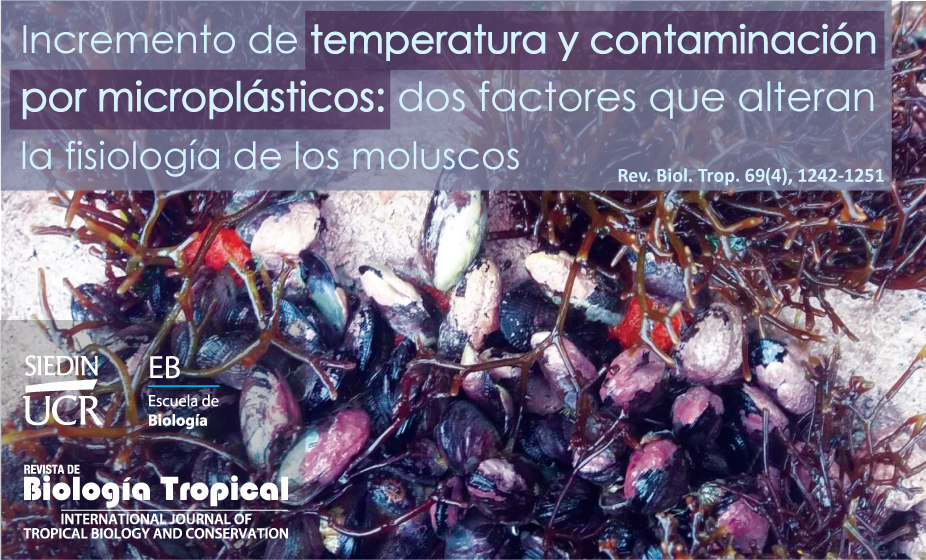Abstract
Introduction: The presence of microplastics (MPs, particles smaller than 5 mm) and the increase in temperature in the oceans, have been generating disturbances in marine life, which can be related to alterations in the metabolism of filter-feeders, such as Mythilids. Objective: The effect of different temperatures and concentrations of MPs on the filtration rate (TF) of Semimytilus algosus is evaluated. Methods: A sample of organisms (N = 72) was exposed to four temperatures (17, 20, 23 and 26 °C), and a control without microplastics (MPs0) and two concentrations of MPs (< 125 µm) of 0.125 mg/l (MPs1) and 0.250 mg/l (MPs2), all in combination with Isochrysis galbana microalgae (1x106 cells/ml/day) for 21 days. Results: As the concentration of MPs increased, the TF of S. algosus decreased. Regarding temperature, during day 7 a higher TF was observed at 23 °C in all treatments, and during days 14 and 21 the lowest TF values were obtained at 23 and 26 °C. The joint action of the increase in temperature and MPs, negatively affected the TF of S. algosus, where both factors caused the decrease in TF for all evaluation times. No mortality was recorded at 17 °C for any treatment, and in the case of mytylids exposed to MPs1 at 20 °C and 26 °C, the highest mortality (67 %) occurred. Conclusions: The study demonstrates the adverse effect of the increase in temperature and MPs on the TF of S. algosus.
##plugins.facebook.comentarios##

This work is licensed under a Creative Commons Attribution 4.0 International License.
Copyright (c) 2021 Revista de Biología Tropical



